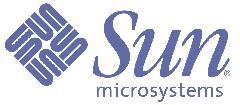

The Sun acquisition by Oracle has been a long debate on the press and Twitter.
Yesterday, as I was strolling through our internal corporate portal, I saw a headline post about this topic which continued in our internal forum, asking about our thoughts on this move. I thought I’d just share them with everyone.
First, we have yet to spot the real motivation that lead Oracle to overtake on Sun. Might be end-to-end data center solution or can be software based (Java mainly).
If you look at Oracle’s portfolio, it is mainly Java based, wether it is Oracle Database design tools, Middleware or most other applications. So, leveraging Java technology will certainly be a big asset for them.
Sun and Oracle have both a whole different corporate culture and outlook on open-source. So far Oracle has only done limited Open Source incursions. Mainly their Linux support service was a way to draw in more database customers. Oracle has a different approach to open-ness than Sun has. Plus the open source business model relies on services which is not something Oracle is really experienced with as they mostly rely on partners. And since Sun has drastically reduced the open source service over the year, they might not prove better monetizing these solutions.
The Java community is among the most importants in the IT world, Oracle cannot take back some of asserted concepts, like open source, availability/portability and roadmap for Java and its SDK. But they could fork their development into a community version and an enterprise version, providing a business oriented framework which is the main motivation for enterprises. On the other side, you’ll still have community produced content and software (Struts, Spring, Hibernate…).
Looking through MySQL, there are two differentiating parts:
- MySQL as a community and open source database, which might be kept as en entry database software, that fits well with the web world
- MySQL Enterprise (including MySQL Cluster) which will certainly be cut dead as it is a direct competitor to Oracle.
Although, for cost reasons, Oracle will probably reduce the team sizes for these community products to the minimal requirement. Hence you can expect more delayed releases and less improvement over time. The maintenance will probably an issue to discuss.
Oracle will probably kill all the non profitable side apps like Glassfish, Netbeans as they will try to impose their own existing tools that have been acquired through the years (especially through BEA). Not to forget that Oracle is a member of Eclipse, which is the main Netbeans competitor.
Now on the hardware level, the fact that Oracle provides hardware will probably change its relationship with hardware partners. For example, I can see the HP-Oracle Exadata partnership killed as Oracle will manufacture its own high profile database platforms.
Will the software still be agnostic ? Not sure. You might see in the future a delayed support for other platforms (Windows, AIX, HP-UX, Linux).
One of the main opportunities Oracle gets by acquiring Sun is entering the Cloud Computing world, they would be able provide an end to end platform. Sun has already made great achievements and acquisitions in this way. Completing their infrastructure with Cloud oriented applications (web application servers, database) will certainly reinforce Oracle’s position on this market as a global provider.
Now what are the threats to SAP ? It all depends on how strong the SAP-Oracle relationship in the coopetition environment.
SAP is a main driver to Oracle’s database world so has it been for Sun’s hardware and software (OS, Clustering). On the other hand, Sun was maintaining a specific SDK for SAP in order to run NetWeaver 7.0 Java based platforms. Will the version still be maintained by Oracle ?
As for future releases, SAP has taken a step ahead and is now basing the new solutions on its own JDK, named Solid Rock, this reduces the liability to Sun’s releases thus to Oracle. On the other hand, SAP uses its own framework for building Java applications (CAF and Java webdynpros), thus the impact of Oracle owning Java cannot be significant.
Still this rises the liability to its main competitor for future releases. In order to be kept aligned on future evolutions of the technology, SAP will still have to leverage the advancements made by Oracle on Java in order be standards compliant. Unless Oracle suddenly threats Java as a private and proprietary asset, SAP might not affected by this.
Oracle has now become a big threat to IBM then to HP (and possibly Microsoft) rather than SAP. The position against SAP will barely change by this acquisition, but this makes an important competitor to these 3 others.
